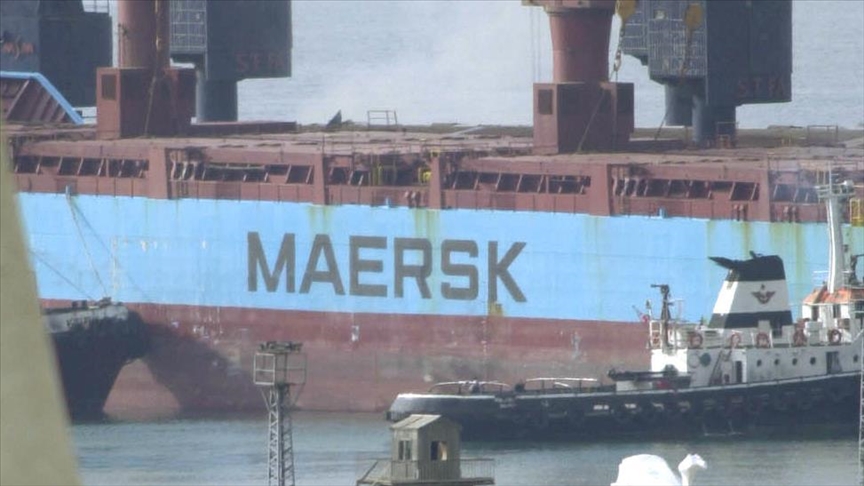Plastic pellets polluting Spanish beaches after container ship spill
Tiny pieces of plastic pose risk to marine animals and are difficult to recover
 FILE PHOTO
FILE PHOTO
OVIEDO, Spain
Spanish prosecutors opened an investigation after a growing number of tiny plastic pellets continued washing up on shores of northwestern Spain, Spanish daily El Pais reported on Monday.
Almost a month ago, the Toconao container ship chartered by shipping giant Maersk reported that several containers had gone overboard off the coast of Portugal.
While authorities were unable to immediately recover any of the containers, El Pais reports that one of them was loaded with around 1,000 sacs of tiny plastic pellets weighing 25 kilograms (55 pounds) each. According to Greenpeace, there are approximately 22,500 pellets per pound.
Around a week after the spill, entire bags of pellets and millions of tiny plastic pellets that had come loose began washing up on the shores of the Spanish region of Galicia. In recent days, the pollution has intensified.
Volunteers have flocked to the beaches with vacuums and tools to sift through the sand, given that the pellets, also known as nurdles, are under 5 mm (0.20 inches) long.
On Monday, the government in the neighboring region of Asturias activated the plan for sea pollution after microplastics began washing up there too.
The Galician government has activated a “level one” emergency, but Spain’s central government is urging them to boost the emergency level to two so Madrid can send more resources.
On Monday, the Galician environment minister said while the microplastics are made of polyethylene terephthalate and are “neither toxic nor dangerous,” it is imperative to remove them from local beaches.
But Carmen Morales, marine ecotoxicology researcher at the University of Cadiz, wrote in Spain’s Science Media Centre (SMC) that the plastic spill “is very bad news” because the pellets are “highly persistent in the natural environment.”
“Given their buoyancy, they can be dispersed by currents, which makes their recovery very difficult,” she wrote, adding that their size means many marine animals might confuse them for food.
“Once ingested, the pellets can cause physical damage like altering food intake or abrasion, or through endocrine disruption or impacts from associated toxic substances,” she added.
In January 2023, the French government announced it would take legal action over a similar “environmental nightmare” after waves of similar plastic pellets began polluting the beaches of Brittany.
Anadolu Agency website contains only a portion of the news stories offered to subscribers in the AA News Broadcasting System (HAS), and in summarized form. Please contact us for subscription options.

